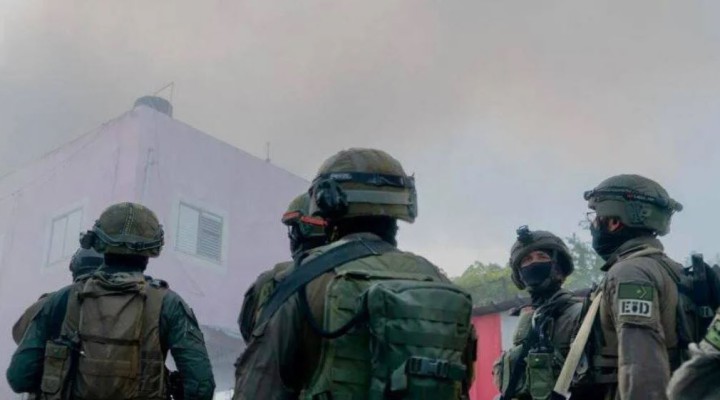The IDF’s legacy, 75 years on

While Israel prefers to obliterate the 1948 Nakba from its historical memory despite being the perpetrator of Palestine’s ethnic cleansing and colonisation, the same cannot be said for the origins of the Israeli Defence Forces (IDF). Last month, Israel celebrated the 75th anniversary since the military’s establishment. The order was signed by David Ben Gurion, Israel’s first prime minister, on 26 May, 1948, legitimising the violence of the Zionist paramilitaries by incorporating them into the colonial state’s military institution.
Israeli media glorified the IDF’s establishment and the concept of the “people’s army”, which was coined to illustrate conscription and the links between the military and society. Ynet news carried brief testimonies of the IDF’s former soldiers from 1948, glossing over the atrocities of the Nakba and furthering an illusion of an army “ready to sacrifice everything for their homeland”.
The reality, however, is that the Zionist paramilitaries enjoyed initial impunity from the British Mandate era, and the same impunity was replicated by the international community as Israel continues to function exclusively and exceptionally away from international law. Its legacy has nothing to do with protecting its citizens, but protecting the Israeli colonial enterprise. This, by being the instrument of the Palestinian people’s ethnic cleansing from their land, which is ongoing, as is seen by the IDF’s participation in all forms of violence against the indigenous population.
Gaza stands out as an epitome of what Palestinians have suffered because of the IDF. The periodical bombings of the enclave, at times drawn out military operations massacring entire Palestinian families, have been rendered more visible due to mainstream media’s temporary but intense shift of attention, even if many times misreported to generate impunity for Israel under the false narrative of defence.
Yet the IDF’s entire control over Palestinian lives – checkpoints, protection of settlers, nightly incursions and raids of Palestinian villages and homes, the extrajudicial killings of Palestinians, torture and abuse of Palestinian detainees, including minors – is what the IDF is also about. The detachment with which Israel speaks of the IDF – even the international community – has been possible through the normalisation of violence against Palestinians. With Israel’s fabricated security narrative being given priority, the Palestinian people’s lives ravaged by colonial violence have become trivialised, as much as the IDF’s actions themselves.
From war crimes to individual acts of normalised aggression – the most common being the growing number of displaced Palestinians, rendered refugees as a result of home demolitions for further colonial expansion – the international community also protects the IDF from scrutiny. Whatever forms of violence the ID metes out, the international community’s recognition of colonialism to defend itself violently is repeatedly established, thus justifying even the earlier actions of the Zionist legacy before the paramilitaries became conscripted. If focus shifted onto the IDF’s actions, instead of the normalised terminology the international community uses to make international law violations inconspicuous, Israel’s security narrative would be questioned, and the IDF’s “moral army” narrative would no longer be upheld.
The IDF’s legacy is, and will be, colonial violence.
https://www.middleeastmonitor.com/20230601-the-idfs-legacy-75-years-on/
 TheAltWorld
TheAltWorld 
0 thoughts on “The IDF’s legacy, 75 years on”